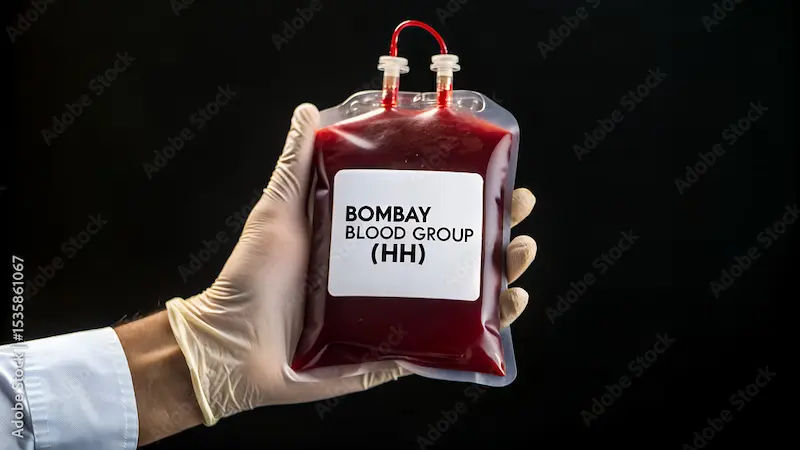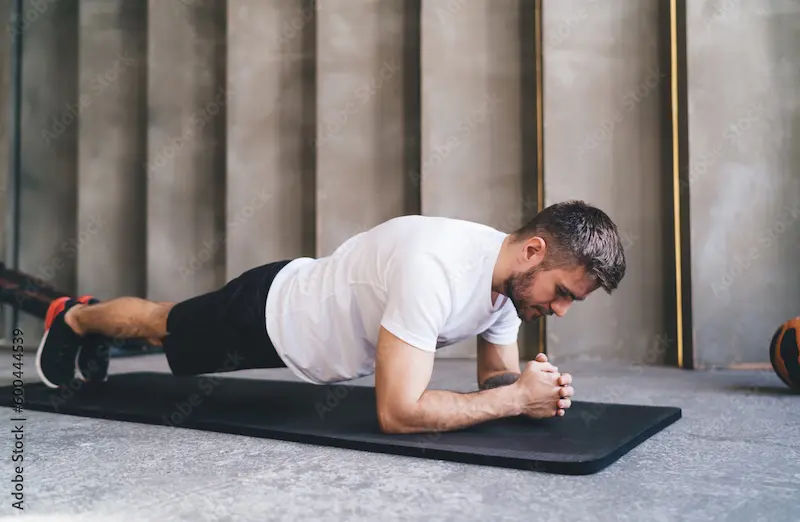How to Prevent Heart Problems in Winter
Know about the heart problems in winter, why winter stresses heart, risk factors, warning signs, prevention, winter triad, food to fight heart problems and more.

Written by Dr. M L Ezhilarasan
Reviewed by Dr. Rohinipriyanka Pondugula MBBS
Last updated on 13th Jan, 2026

Introduction
Winter challenges your heart in ways you can’t see. Cold air makes blood vessels tighten, raising blood pressure and forcing the heart to pump harder. Wind chill and sudden temperature shifts add stress, while seasonal infections, holiday habits, and less sunlight can further strain your cardiovascular system. The good news: with simple steps, you can prevent heart problems in winter and keep doing what you love. In this guide, you’ll learn why the season raises risk, who needs extra vigilance, and how to dress, eat, move, and monitor smartly. We’ll share safer ways to shovel snow, practical home blood pressure routines, and a personal winter heart-safety plan that fits real life. You’ll also see how vaccines, better sleep, and small nutrition tweaks can protect your heart, plus when to call for help. Whether you have a known condition or just want to stay healthy, this step-by-step plan will help you prevent winter-related heart issues from your front door to your daily routine.
Consult Top Cardiologist
Why Winter Stresses Your Heart
Cold exposure triggers vasoconstriction blood vessels narrow to preserve core heat. That raises blood pressure and heart rate, increasing the heart’s workload. For people with coronary artery disease, the extra effort can provoke angina or, in some cases, a heart attack. Even healthy individuals may see blood pressure rise in the cold, which partly explains why heart events are more common in winter months.
Another factor is blood thickness. Dry indoor air and lower thirst cues lead to dehydration, which can concentrate the blood and may increase clotting tendency. Cold itself can also make platelets stickier. Together, these changes may raise the risk of blood clots that can block coronary arteries. Add stressors like heavy meals, alcohol, and emotional triggers around holidays, and the heart faces a seasonal “perfect storm.”
Wind chill matters, too. Moving air strips heat faster than still air, so a breezy day can be more stressful than the thermometer suggests. Rapid transitions like going from a warm house to frigid air or inhaling cold air during exertion intensify vessel constriction in the chest, sometimes causing chest tightness or shortness of breath. A simple hack: breathe through a scarf or mask outdoors to warm air before it reaches your lungs.
Who’s Most at Risk When Temperatures Drop
Certain groups should be especially careful in winter. People with coronary artery disease, prior heart attack or stroke, heart failure, hypertension, diabetes, chronic kidney disease, and high cholesterol are more vulnerable to cold-induced stress. Older adults often have reduced thermal regulation and may not sense cold early. Women sometimes experience atypical symptoms during heart events and can be underdiagnosed; awareness is protective..
Medications can change your response to cold. Some blood pressure medicines (like diuretics) can contribute to dehydration; others (like beta-blockers) limit heart rate increases, which may blunt early warning signs during exertion. If you use nitrates for angina, rapid temperature shifts may still provoke chest tightness. People with peripheral artery disease may notice leg pain sooner in the cold due to vessel constriction.
Socioeconomic factors are also important as Inadequate home heating, poor insulation, and limited access to warm clothing or safe transportation raise risk. If heating costs are a challenge, prioritize insulating one room as a warm zone, use draft stoppers, and seek local programs that support winterization.
Early Warning Signs You Shouldn’t Ignore
Classic heart attack symptoms include chest pressure, tightness, or pain that may spread to the arm, back, neck, or jaw; shortness of breath; nausea; lightheadedness; or a cold sweat. In winter, these may be triggered by exertion in cold air—like rushing to catch a bus or shoveling snow. Women, older adults, and people with diabetes may have subtler signs: unusual fatigue, breathlessness, indigestion-like discomfort, or back/jaw pain.
Angina in cold air often feels like pressure or tightness that starts with exertion and improves with rest or warmth. If you use nitroglycerin, follow your prescribed protocol. If chest pain lasts more than a few minutes, is severe, or is accompanied by fainting or worsening breathlessness, call emergency services immediately.
Differentiate hypothermia from cardiac symptoms. Hypothermia signs include intense shivering, slurred speech, confusion, and clumsiness. Both hypothermia and heart attacks can cause fatigue and confusion; when in doubt especially if chest symptoms are present—seek urgent help.
If symptoms persist beyond two weeks, recur with exertion, or you’re unsure whether it’s angina vs. reflux, consult a doctor online with Apollo24|7 for further evaluation. If symptoms are acute or severe, do not delay emergency care.
Move Safely: Activity, Exercise, and Snow Shoveling
Regular movement is essential for heart health—even in winter. Aim for 150 minutes of moderate activity weekly, but adapt to the cold. Start with a longer warm-up (10–15 minutes) indoors. Gentle marching, arm circles, and dynamic stretches raise muscle temperature and reduce vascular shock. Breathe through a scarf or mask outside to warm inhaled air and reduce chest tightness. Keep initial outdoor efforts conversational in intensity and shorten bouts when it’s below freezing.
Snow shoveling deserves special caution. It’s a high-exertion, isometric activity that can spike blood pressure and heart rate quickly, particularly in cold air—both contributors to heart attacks. If you’re older, have heart disease, or are deconditioned, outsource shoveling, use a snow blower (which reduces load), or clear snow in small layers while it’s fresh and light. Push rather than lift. Take breaks every 10 minutes, and stop immediately if you feel chest discomfort, breathlessness beyond usual, or dizziness.
Indoor alternatives keep you active without cold stress. Try low-impact circuits: bodyweight squats, wall push-ups, seated marches, and resistance band rows. For heart failure or angina, consider short “exercise snacks” (3–5 minutes) several times a day. Track perceived exertion (aim 4–6 out of 10). If you use a wearable, also watch for unusual heart rate spikes in the cold.
Eat, Drink, and Supplement Smart for Winter Heart Health
Winter eating trends heavier meals, comfort foods, and holiday treats—can boost sodium, sugar, and saturated fat. Swap smart: build meals around high-fiber plants (beans, lentils, oats, winter greens), colorful vegetables (carrots, squash, beetroot), lean proteins (fish, skinless poultry), and unsalted nuts and seeds. This Mediterranean-style approach supports healthy lipids and blood pressure. Aim for 25–30 g fiber daily and limit sodium to about 1500–2000 mg unless your clinician advises otherwise.
Hydration is often overlooked in winter. Cold blunts thirst cues, and heated indoor air promotes fluid loss. Dehydration can thicken blood and raise clot risk. Keep a warm beverage routine: unsweetened herbal teas or warm water with lemon, and a glass of water with each meal.
Alcohol and added sugars tend to creep up around holidays. Both can elevate blood pressure and triglycerides. Stick to recommended limits if you drink at all, and alternate alcoholic drinks with water. For desserts, cut serving sizes in half or choose fruit-based options. Prioritize omega-3-rich fish (salmon, sardines) twice weekly; if you rarely eat fish, ask your clinician whether an omega-3 supplement is appropriate for you.
Vitamin D levels often drop in winter due to limited sunlight. While evidence for vitamin D supplements and direct heart-disease prevention is mixed, correcting deficiency supports overall health. Apollo24|7 offers convenient home collection for tests like vitamin D or HbA1c, which can be especially useful in winter when travel is harder.
Track Your Numbers: BP, Cholesterol, and Glucose
Monitoring keeps you proactive. Home blood pressure checks are particularly useful in winter when readings can run higher. Best practice: sit in a warm, quiet room for at least five minutes before measuring; avoid caffeine or nicotine for 30 minutes; feet flat, back supported, arm at heart level. Take two readings one minute apart in the morning and evening for a week when seasons change or meds adjust, and share averages with your clinician.
Cholesterol and glucose management remain core to prevention. If you’re due for a lipid panel, HbA1c, or kidney function tests, consider winter scheduling so your plan is optimized before the coldest months. For some, high-sensitivity C-reactive protein (hs-CRP) can guide inflammatory risk discussions. Apollo24|7 offers home sample collection, which can simplify winter testing and reduce exposure during infection season.
Don’t let refills lapse. Keep at least a two- to four-week buffer of heart medications, especially during storms. If you notice higher home BP readings or more frequent angina in winter, talk with your clinician; small medication adjustments or timing changes (for example, taking nitrates before cold exposure) may help. If your condition does not improve after trying these methods, book a physical visit to a doctor with Apollo24|7.
Defend Against Flu, COVID-19, and Indoor Air Risks
Respiratory infections rise in winter and can strain the heart. Inflammation, fever, dehydration, and lower oxygen levels all increase cardiac workload and can trigger events in vulnerable individuals. Vaccination against influenza and COVID-19 lowers the risk of severe illness and may reduce cardiovascular complications [3]. If you have heart disease or are older, staying up to date is particularly important.
Indoor air quality matters because we spend more time inside. Use HEPA filtration if possible, ventilate briefly to reduce indoor pollutants without freezing your home, and avoid smoking or vaping indoors. If air pollution is high in your area during winter inversions, plan outdoor activity when pollution is lowest (often midday) or move exercise indoors.
If you get sick, rest and hydrate. Return to activity gradually: once fever resolves and breathing is comfortable at rest, start with light movement for a few days before resuming moderate exercise. If you experience chest pain, unusual breathlessness, or palpitations during or after illness, consult a doctor online with Apollo24|7 for guidance.
Stress, Sleep, and Mood: The Winter Triad
Shorter days can disrupt circadian rhythms and raise stress hormones, nudging blood pressure and blood sugar higher. Seasonal affective disorder (SAD) can add fatigue, carbohydrate cravings, and low motivation—undercutting heart-healthy habits. Sleep apnea may worsen with winter weight gain and nasal congestion, increasing nighttime blood pressure surges and daytime fatigue.
Combat the triad with structure. Use a consistent sleep schedule and morning light exposure (open blinds upon waking; consider a 10,000-lux light box if SAD is diagnosed). Keep caffeine moderate and early in the day. Practice brief, frequent stress resets: 2–5 minutes of slow breathing (for example, exhale longer than inhale), a short walk break, or a quick stretch. Small, repeated doses of relaxation lower average blood pressure and improve resilience.
If you use CPAP for sleep apnea, check your equipment and humidity settings before winter peaks. For persistent low mood, talk therapy and, when appropriate, medication can help you sustain heart-protective habits. If symptoms persist beyond two weeks, consult a doctor online with Apollo24|7.
Build Your Personal Winter Heart-Safety Plan
Layering strategy: use a three-layer system—moisture-wicking base (keeps sweat off skin), insulating mid-layer (fleece/wool), and wind/water-resistant outer shell. Keep extremities warm with a hat, scarf/mask, and gloves; hand warmth reduces the body’s reflex to clamp down blood vessels. For footwear, choose insulated, non-slip soles to avoid falls and the sudden heart-rate spikes that follow.
Home heating and thermostat scheduling: aim for at least 18–20°C (64–68°F) indoors, especially in rooms where you sit or sleep. Seal drafts and use a space heater safely to create a warm zone if whole-home heating is difficult. Program your thermostat to pre-warm the home before waking and before returning from outside—preventing abrupt temperature shifts that stress the heart.
Travel and outage preparedness: keep an emergency car kit with a blanket, hat/gloves, water, a charged power bank, and a list of medications. At home, store two weeks of essential medications and a basic first-aid kit. Charge devices ahead of storms and know local warming centers. If you plan high-altitude or very cold travel and have known heart disease, discuss an activity plan with your clinician.
Conclusion
Winter doesn’t have to be hard on your heart. With a few practical adjustments warming up, layering wisely, pacing outdoor chores, and staying hydrated you can prevent heart strain even on the coldest days. Keep your blood pressure, cholesterol, and glucose in check, maintain medication routines, and use home monitoring to catch changes early. Vaccinations and good indoor air help protect you from infections that can stress the cardiovascular system. Don’t overlook the power of steady sleep, stress management, and mood support to keep your winter habits on track. Most importantly, act promptly if you notice chest discomfort, breathlessness, or unusual fatigue timely care saves lives. Consult a doctor online with Apollo24|7 for personalized guidance, and consider home collection for key labs to fine-tune your plan. Build your personal winter heart-safety checklist today so you can feel secure, stay active, and enjoy the season—safely and confidently.
Consult Top Cardiologist
Consult Top Cardiologist

Dr. Dayanashre N
General Physician
3 Years • MBBS
Bengaluru
PRESTIGE SHANTHINIKETAN - SOCIETY CLINIC, Bengaluru

Dr. Bhethala Sharan Prakash
General Physician/ Internal Medicine Specialist
5 Years • MBBS MD
Bengaluru
PRESTIGE SHANTHINIKETAN - SOCIETY CLINIC, Bengaluru

Dr. Anand Ravi
General Physician
2 Years • MBBS
Bengaluru
PRESTIGE SHANTHINIKETAN - SOCIETY CLINIC, Bengaluru

Dr. Sunil Modi
Cardiologist
38 Years • MBBS,MD (Med.),DM (Cardio)
Delhi
Apollo Hospitals Indraprastha, Delhi
(25+ Patients)

Dr. Col V Hariharan
Cardiologist
34 Years • MBBS, MD(Med.), DM (Cardio), FICA FISE FICC
Delhi
Apollo Hospitals Indraprastha, Delhi
(50+ Patients)
Consult Top Cardiologist

Dr. Dayanashre N
General Physician
3 Years • MBBS
Bengaluru
PRESTIGE SHANTHINIKETAN - SOCIETY CLINIC, Bengaluru

Dr. Bhethala Sharan Prakash
General Physician/ Internal Medicine Specialist
5 Years • MBBS MD
Bengaluru
PRESTIGE SHANTHINIKETAN - SOCIETY CLINIC, Bengaluru

Dr. Anand Ravi
General Physician
2 Years • MBBS
Bengaluru
PRESTIGE SHANTHINIKETAN - SOCIETY CLINIC, Bengaluru

Dr. Sunil Modi
Cardiologist
38 Years • MBBS,MD (Med.),DM (Cardio)
Delhi
Apollo Hospitals Indraprastha, Delhi
(25+ Patients)

Dr. Col V Hariharan
Cardiologist
34 Years • MBBS, MD(Med.), DM (Cardio), FICA FISE FICC
Delhi
Apollo Hospitals Indraprastha, Delhi
(50+ Patients)
More articles from General Medical Consultation
Frequently Asked Questions
1) Is it true more heart attacks happen in winter?
Yes. Cold causes blood vessels to constrict and blood pressure to rise, while infections and holiday habits add stress—together increasing events in winter months [1][2][5].
2) How can I prevent high blood pressure in cold weather?
Warm up indoors, dress in layers, limit sudden exertion, reduce sodium, stay hydrated, and measure BP in a warm room. If readings remain high, consult a doctor online with Apollo24|7.
3) What are safe snow shoveling tips for heart patients?
Consider outsourcing or using a snow blower. If shoveling, warm up, push rather than lift, clear small layers, take breaks every 10 minutes, and stop immediately if you feel chest pain or breathlessness [3].
4) Do flu shots help heart health?
Vaccination reduces severe illness and may lower cardiovascular complications linked with infections. People with heart disease especially benefit [3].
5) Should I take vitamin D in winter for my heart?
Correcting deficiency supports overall health, but supplements aren’t a substitute for core prevention. Ask your clinician; Apollo24|7 offers home collection for vitamin D testing.




